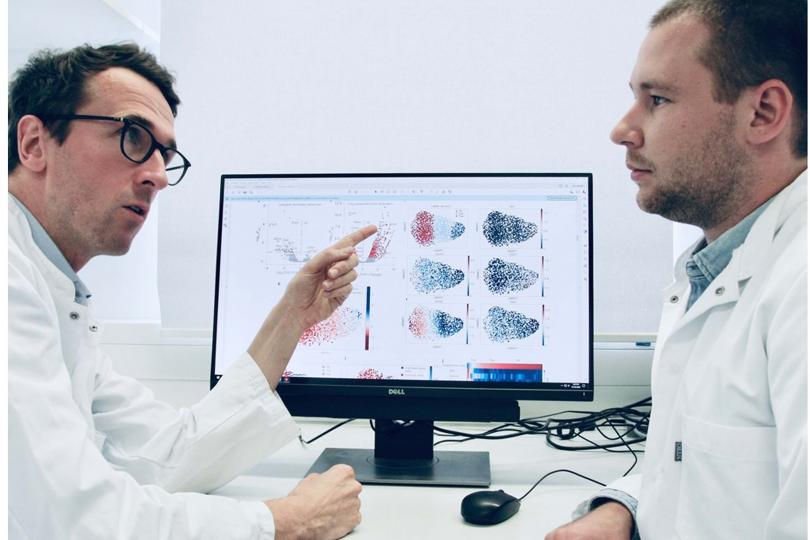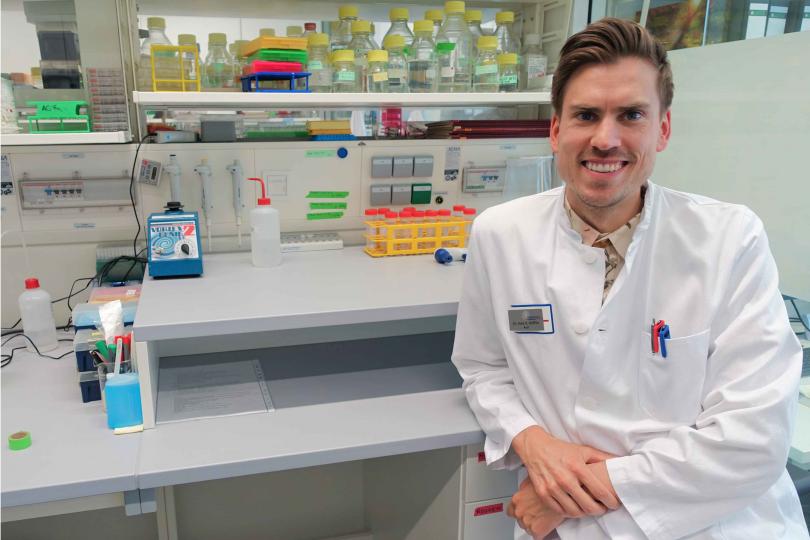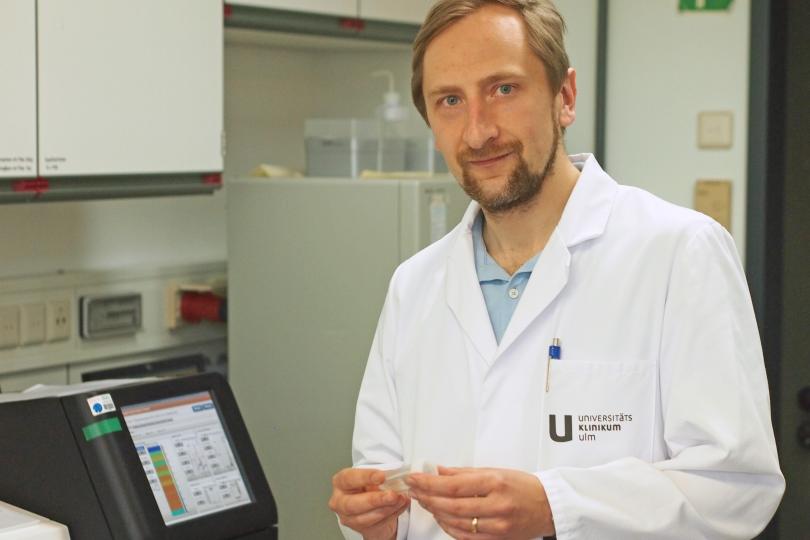
The three next-generation scientists Dr. Eugen Tausch, Dr. Rouven Höfflin and Dr. Veit Buchholz are this year's winners and will be honored for their publications from 2020. Each of the prizes is endowed with EUR 10,000 for use at the prizewinner’s personal discretion.
Prize winners 2021:
Dr. Veit Buchholz, Institute for Medical Microbiology, Immunology and Hygiene, Technical University of Munich (TUM), for his paper in Nature Immunology 2020 Dec;21(12):1563-1573
Dr. Buchholz leads the project "Dissecting the induction of inflationary CD8+ T cell memory on the single-cell level" of the EKFS first- and second-application funding line from which the publication has arisen.
It is traditionally assumed that immunological memory gradually develops over weeks and months after a vaccination. Together with my working group, I have developed methods to follow this process starting out from individual lymphocytes. By breaking down immune responses into these smallest possible units, we have now been able to show that immunological memory of T cells originates from a tiny subgroup of these cells that arises during the first few days after vaccination and that has stem cell-like properties for self-renewal. The identification of these so-called “central memory precursors” as the key source of T cell memory could make it possible to predict the durability of immune response already very early after vaccination and to develop approaches for the targeted generation of this crucial immune cell type.
Here you can find further information.
Dr. Rouven Höfflin, Department of Medicine I, Medical Center – University of Freiburg, Faculty of Medicine, University of Freiburg, for his paper in Nature Communications 2020 Aug 17;11(1):4111. The publication arose from the project “Impact of HIF to the immunological tumor microenvironment and multi-drug testing in clear cell renal cell carcinoma” (EKFS first application line).
The unique feature of clear cell renal cell carcinoma (ccRCC) is an aberration of the VHL gene, leading to an accumulation of the two proteins HIF-1α und HIF-2α. Using one of the world’s first ccRCC mouse models, we were able to identify crucial functions of these proteins on the tumor onset and progression as well as their impact on intratumoral metabolism and inflammatory cells. This knowledge will be important for research and development of new therapeutic strategies that will likely involve HIF-inhibition and immunotherapy.
Here you can find further information.
Dr. Eugen Tausch, University Hospital Ulm, Department of Internal Medicine III, for is paper in Blood 2020, 25, 135(26):2402-2412
The publication arose from the Else Kröner Research Schools for Physicians, University Hospital Ulm in 2013/ 2014.
Chronic lymphocytic leukemia (CLL) is the most frequent leukemia in the Western world. The course of the disease is highly heterogeneous and dependent on risk factors. The grant generoursly provided by the EKFS allowed me to establish a prognostic gene panel on a modern next-generation sequencing (NGS)-based platform to analyze genetic risk factors in patients treated within the CLL14 trial, in which CLL patients were randomly assigned to chemoimmuntherapy or the BCL2 inhibitor venetoclax in combination with the CD20 Antibody Obinutuzumab. Mutations in the TP53 gene and/or deletion of chromosome 17p were identified as risk factors independent of therapy in contrast to other markers, which affected outcome only with chemoimmuntherapy. Thus, we identified patient subgroups with the strongest benefit from the combination of Venetoclax with Obinutuzumab – an important step towards precision medicine for patients with CLL.
Here you can find further information.


